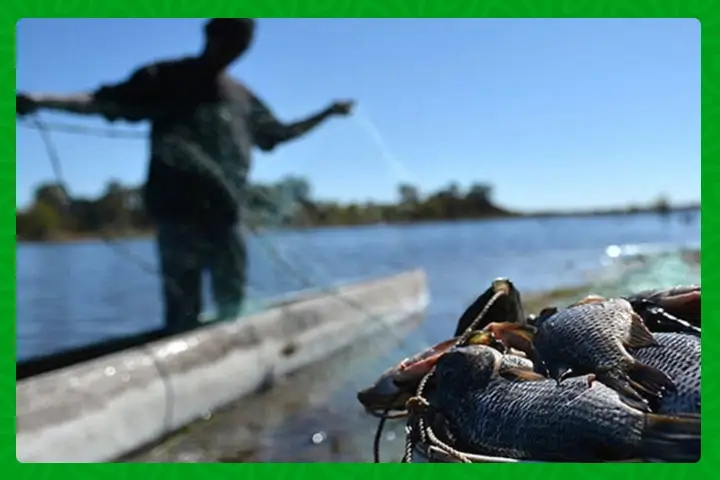
At the forefront of a pivotal gathering marking the First Africa Small-Scale Fishers Meeting, Tanzania’s Deputy Prime Minister and Minister of Energy, Dr. Doto Biteko, has issued a clarion call to stakeholders across the continent. In his stirring address, Dr. Biteko highlighted the urgent need to safeguard fisheries resources, a sector that underpins the livelihoods of millions yet faces numerous existential threats.
The Plight of Small-Scale Fishers: An Urgent Call for Action
The backdrop to Dr. Biteko’s appeal is a sobering exposé that revealed the precarious position of fishermen and business owners, many of whom are teetering on the brink of bankruptcy. In Tanzania, small-scale fishers are the backbone of the fishing industry, constituting an astounding 95 percent of all fishing activities. Despite their significant contribution, these fishers grapple with multifaceted challenges that jeopardize their survival and the sustainability of the sector.
A Sector of Contrasts: High Production, Low GDP Contribution
Official statistics paint a picture of a sector that, while productive, is underperforming economically. Tanzania’s annual fish production stands at approximately 475,579 tons, with about 429,168 tons sourced from natural waters. However, the sector’s contribution to the gross domestic product (GDP) is a modest 1.9 percent, translating to roughly 3.4 trillion Tanzanian shillings (US$1.3 billion). This discrepancy underscores the need for strategic interventions to unlock the sector’s full economic potential.
Addressing Multifaceted Challenges
Dr. Biteko’s speech underscored a litany of challenges that beset the fisheries sector. Climate change remains a formidable adversary, altering aquatic ecosystems and affecting fish stocks. Additionally, there is a critical underrepresentation of stakeholders—particularly women and youth—in fisheries management. This demographic imbalance hampers the sector’s growth and sustainability.
Moreover, post-harvest losses present a significant hurdle, reducing the overall economic value derived from fishing activities. These losses, coupled with inadequate infrastructure and market access, hinder the sector’s efficiency and profitability.
A Decade of Progress: Reflecting on Achievements and Envisioning the Future
Minister of Livestock and Fisheries, Abdallah Ulega, echoed Dr. Biteko’s sentiments and expressed pride in Tanzania’s role as the host of the inaugural Africa Small-Scale Fisheries Conference. This landmark event commemorates a decade of progress since the adoption of the Voluntary Guidelines for Securing Sustainable Small-Scale Fisheries. The guidelines, a cornerstone of the International Year of Artisanal Fisheries and Aquaculture (IYAFA) celebrated in Rome, Italy, in March 2023, provide a framework for sustainable practices and policies.
The conference, themed “A Decade of Progress: Envisioning the Future of Sustainable Small-Scale Fisheries,” serves as a vital platform to reflect on past achievements and chart a sustainable and equitable future for small-scale fishers across Africa. It aims to galvanize collective action and foster partnerships that are crucial for the resilience and prosperity of the fisheries sector.
The Way Forward: Strategic Interventions and Stakeholder Engagement
To translate the rhetoric of the conference into tangible outcomes, several strategic interventions are imperative. Firstly, enhancing the resilience of fishers to climate change through adaptive measures and sustainable practices is critical. This includes promoting the use of climate-resilient fishing methods and diversifying income sources for fishing communities.
Secondly, increasing the representation of women and youth in fisheries management is essential. Empowering these groups through targeted training programs and inclusive policies can drive innovation and sustainable growth in the sector.
Lastly, addressing post-harvest losses through improved infrastructure, better storage facilities, and streamlined market access can significantly boost the sector’s efficiency and profitability.
Conclusion: A Call to Collective Action
The First Africa Small-Scale Fishers Meeting in Dar es Salaam marks a watershed moment for the continent’s fisheries sector. As Dr. Doto Biteko emphasized, the path to a sustainable and prosperous future for small-scale fishers lies in collective action and robust stakeholder engagement. By addressing the multifaceted challenges and leveraging the sector’s potential, Tanzania and its African counterparts can ensure the long-term viability of their fisheries resources, thereby safeguarding the livelihoods of millions and contributing to economic growth.
In conclusion, the call to action issued at the conference is not just a rallying cry but a strategic imperative. It underscores the urgent need for cohesive and collaborative efforts to secure a sustainable future for small-scale fisheries in Africa.
Stay updated with the latest farming tips and agriculture industry news from Africa by subscribing to our newsletter. Don’t miss out on valuable insights and updates. Follow us on Twitter, LinkedIn, and Facebook to join our farming community and stay connected with us.


















